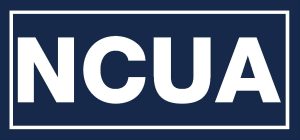It’s not hard to understand why so many want to move to Hudson Valley, NY. The area is blessed with incredible natural beauty, and it has a rich history and culture. A foodie paradise, it has interesting restaurants and endless farmer’s markets to explore. It’s also home to a thriving wine industry.
Residents of the Hudson Valley also enjoy a relatively low cost of living, great public schools, and family-friendly neighborhoods. In short, it’s a great place to live.
If you are thinking about moving to the Hudson Valley, you may be wondering how to get the best mortgage rate on a home. The following tips can help you qualify for a great rate so you can make your dream of living in the Hudson Valley a reality.
Check Your Credit Score
Your credit score isn’t just used in loan approval. A good credit score could also help you get a lower interest rate. This could result in significant savings over the life of your loan. You can get an idea of how much you can save by using an online mortgage payment calculator to enter different interest rates.
Your credit score is an important indicator of how you handled debts in the past. The higher your score, the less risky you will be to lenders. Lenders often reward borrowers with higher scores by offering them lower interest rates.
Improve Your Credit Score (If Necessary)
There are some things you can do to improve your credit score if you would like to increase your chances of getting a lower interest rate. It’s important to keep in mind, however, that credit scores don’t turn around on a dime. It may take a few months to see your score increase with these strategies.
Don’t Miss Any Payments
Paying your bills on time and managing your accounts can improve your credit score. A strategy you can use to make sure you never miss a payment is to set up automatic payments for the minimum amount due each month. You can then make additional payments when you receive your monthly statements.
Apply for Fewer New Accounts
While it may seem counterintuitive, opening a new credit account may cause your credit score to go down a little. This is because hard credit checks negatively affect your credit score. If you’re thinking about applying for a mortgage, refrain from opening new credit accounts for a few months to ensure credit checks don’t harm your score.
Pay Off Existing Debts
When evaluating you for a mortgage, lenders compare how much debt you currently have to your income. This is done to make sure you earn enough money to repay your debts. A metric that is used for this purpose is the debt-to-income (DTI) ratio.
The DTI ratio is always expressed as a percentage, and lower ratios are better. If you have credit card debt, a personal loan, a student loan, or something else, paying off one or more debts can improve your DTI ratio to help you qualify for a better interest rate.
Save for a Higher Down Payment
Lenders view borrowers with down payments of at least 20% as being less risky and often reward them with lower interest rates. Making a high down payment also means you will pay less in interest over the life of your mortgage. Interest is the fee you pay for borrowing money. The less you have to borrow, the less interest you will have to pay.
Another thing to consider is that if you can make a down payment of at least 20%, most lenders will remove the private mortgage insurance (PMI) requirement. This will help you save even more money.
Borrow from a Local Credit Union
Local credit unions—like TEG Federal Credit Union—often offer the lowest interest rates, even though many different types of lenders deal with mortgages. The reason for this is simple. Unlike banks and other lenders, which are for-profit organizations that are concerned with turning a profit for their shareholders, credit unions are non-profit organizations. Their primary goal is to serve their members with the lowest rates and fees possible.
In addition to offering lower APR rates on mortgages, credit unions are also great choices for your general banking needs. They usually have lower (or no) fees than banks, they offer higher interest rates on your savings, and they also provide exceptional service.
Consider a First-Time Home Buyer Loan
Both banks and credit unions offer government-backed mortgages, which one of three government agencies secures. These loans are ideal for first-time home buyers. The US Department of Veterans Affairs (VA), the Federal Housing Administration (FHA), and the US Department of Agriculture (USDA) back them.
There are several important benefits of these loans to consider. First, they are typically easier to qualify for than traditional loans. Interest rates are very low, and they also have low down payment requirements. Each loan has unique requirements, so explore your options to find the best fit.
Make the Hudson Valley Your Home with a Loan from TEGFCU
Discover endless activities in the Hudson Valley—arts, parks, museums, craft beverages, outdoor fun, and festivals await! It’s just one of many reasons why the area is such a great place to live.
TEGFCU provides first-time home buyers in Hudson Valley with low-interest loans, minimal closing costs, and flexible terms. Our mortgage professionals can help you choose the best loan and answer your questions.
Check out the following link to learn more about our first-time home buyer loans.













